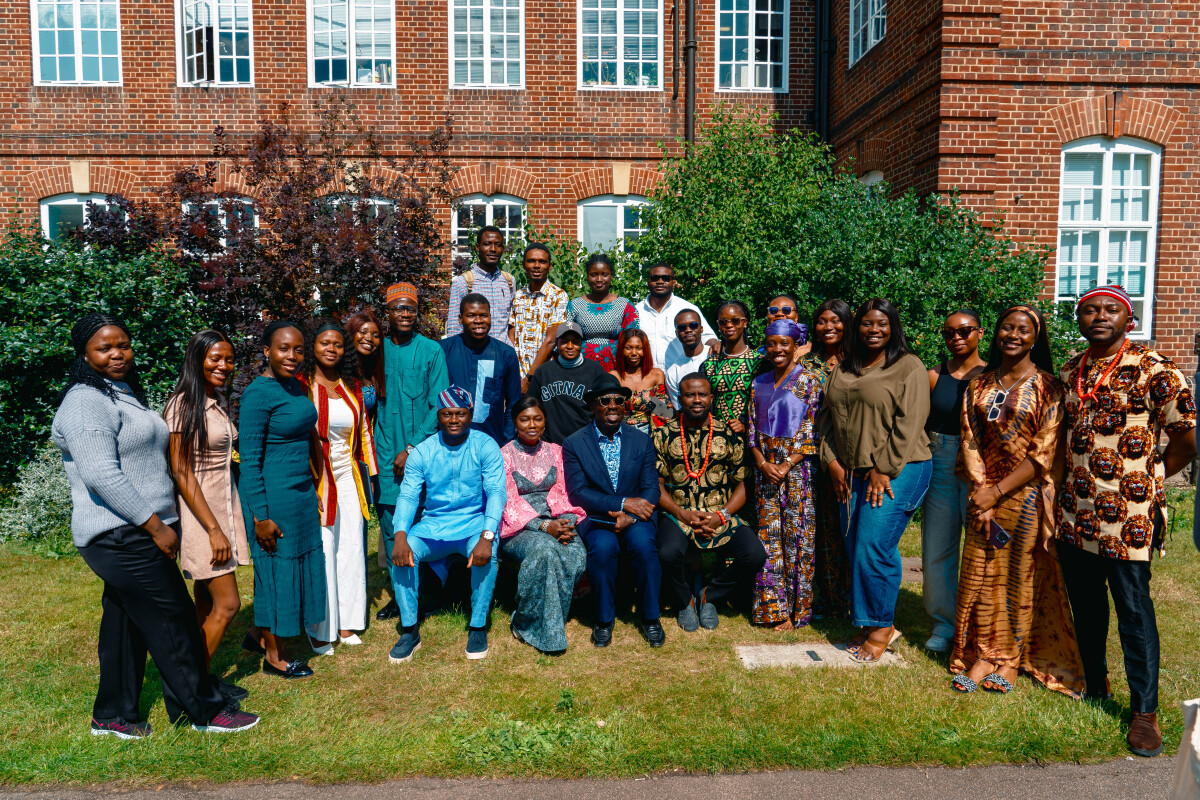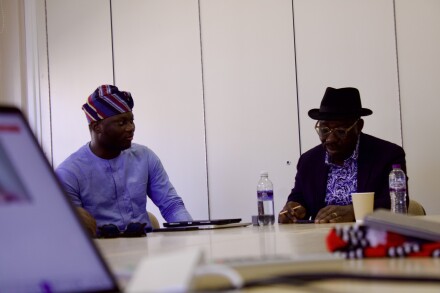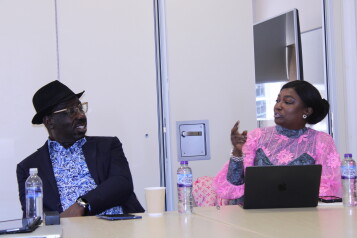2025 Cambridge University Nigerian Society (CUNS) Democracy Day Panel: Documenting Actionable Interventions

Authors: Muhammed Alakitan, Ademola Aiyenuro, Omowonuola Adekanmbi, and Favour Kayode
Every year, the Cambridge University Nigerian Society (CUNS) convenes a democracy-themed panel event to commemorate Nigeria’s fourth republic, which started on May 29, 1999. This year’s theme, ‘Creating Innovative and Sustainable Change within Nigeria’, was coined to reflect the principle that sustainable social progress is fundamentally linked to the reinforcement of core democratic values. These values include the separation of powers, freedom of the press, popular sovereignty, majority rule, and minority rights. Accordingly, panellists were sought based on their demonstrated and long-standing commitment to fostering democratic social change, including:
Dr Kayode Fayemi, a visiting professor at the African Leadership Centre, School of Global Affairs, King's College London. He is also a former governor of Ekiti State.
Dr Aisha Muhammed-Oyebode, the Founder/CEO of the Murtala Muhammed Foundation. She is also the first daughter of former Head of State, General Murtala Muhammed.
Ms Toyosi Ogunseye, the President & Chief Executive Officer of The Presidential Precinct and the first female editor of The Punch Newspaper.
Mr Godwin Obaseki, an Oxford Next Horizons Scholar at Harris Manchester College, University of Oxford. He is also a former governor of Edo State.
Accordingly, a report has been written based on their discussions and actionable interventions for facilitating positive social change within Nigeria and Africa. The report is divided into three sections. First, it documents the various but related ways panellists connect the dots between their childhood and their chosen pathway to actualising change. For instance, Dr Fayemi and Ms Ogunseye vividly describe the importance of current affairs in shaping their interests in understanding the world. They both noted that growing up, their fathers required them to read at least five newspapers every day and to provide a summary of their readings at dinner. These practices not only shaped their interest in journalism, activism, and international development but also improved their literacy and sharpened their critical thinking skills from a young age. On the other hand, Dr Aisha and Mr Obaseki both spoke about the impact of coming from a politically elite family in becoming transformational leaders.

Second, the report presents the panel’s tetrapartite comprehensive analysis on the fundamentals of Nigeria’s democracy. One, in examining activism as an agent of change, Dr Fayemi articulates the value propositions that can enable the crucial transition from unaccountable to accountable governance. Two, building on the notion that the media is the first victim of the failures of democracy, Ms Ogunseye explained the contemporary challenges with the media ecosystem in Nigeria and their impact on public mistrust. In offering practical solutions, she emphasised the need to address poverty, given that the quality of the country’s journalistic output reflects the poverty rate within the country. Three, beyond public service and the media, Dr Muhammed-Oyebode's remarks centred on the safety and security of women and girls, as well as schools as sanctuaries for children, as prerequisites for a functioning democracy. Using the Chibok girls kidnap in Northeastern Nigeria as a case study, she explains how the discourse around women’s fragility blurs the line of Nigeria’s and the continent's development trajectory. Both Dr Muhammed-Oyebode and Mr. Obaseki highlighted the importance of education in enriching the citizens’ capacity for subsistence. Four, in offering a nuanced approach to democracy and governance, Mr Obaseki explained how Nigeria’s complexities are the bane of the country’s system of government. As a resolution, he argued for a clear-eyed awareness of the primary issues of climate change, demographic pressures, and poverty.

Lastly, the report ends with actionable interventions for changemakers in Cambridge and around the world. The panel concluded that the pursuit of sustainable change within Nigeria hinges on practising democracy in its true sense and a collective willingness to engage with critical, foundational questions. Foremost among these are: Does the nation's current democratic framework require fundamental reform, and what mechanisms can be implemented to empower citizens as active participants in their own governance? Do we have a democracy as a freedom of expression and association without restraints from the shrinking State, an independent judiciary, and the delivery of public good? In addressing these questions, the panel emphasised using the resources at disposal to ensure transparency and accountability will lead to meaningful, impactful, and scalable change within the country. Ultimately, the panel discussion affirmed that Nigeria's and Africa’s path forward does not lie in awaiting external saviours but in fostering the collaborative effort of co-creators and with citizens moving from being critics to being active players. In this regard, we ask that if any changemaker in Cambridge or elsewhere wishes to get involved in Nigerian politics and requires active media engagement, or has a proposal for collaborations with the panellists in line with their work, kindly get in touch with the Society at nigeria@cambridgesu.co.uk
The full report can be accessed here.

